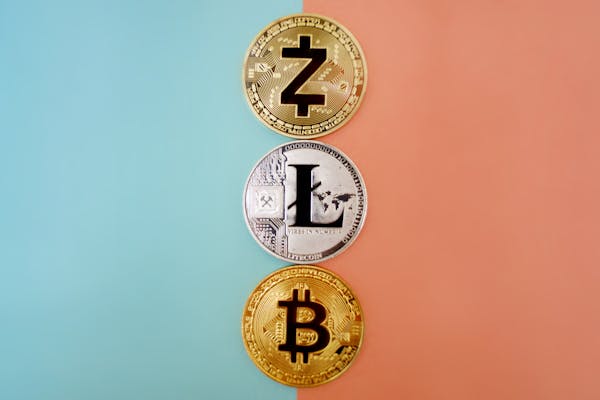Cryptocurrencies allow value to be transferred online without relying on centralized middlemen, like banks. They can be flipped back and forth for profit or used to buy goods and services. Find out more from source.
Be aware that cryptocurrencies are incredibly volatile and can lose value quickly. Be sure to diversify your investments and consider carefully how much risk you can handle.
How it works
Cryptocurrency is a digital form of currency that uses cryptography for security. It operates on decentralized networks based on blockchain technology, which records transaction data and proves ownership without the need for a central authority.
A blockchain is a ledger database that stores information in blocks, chained together like a traditional database. Each block contains a link to a previous block, transaction data and timestamps. This makes it impossible to change or erase past transactions.
Each cryptocurrency has its own blockchain that is managed by a network of computers, called nodes. Nodes relay transactions, validate new transactions and host copies of the blockchain.
Since cryptocurrencies aren’t backed by physical assets, they are often seen as speculative investments with high volatility. They are also unregulated and can be stolen or lost by hackers. And since they’re based on technology, they don’t qualify as legal tender in most jurisdictions. As with any investment, it’s important to understand the risks and do your research.
Why it’s popular
Cryptocurrencies offer a new way of transacting that does not depend on centralized intermediaries like banks and monetary institutions. They also allow for secure storage of digital transactions that are verified with advanced coding technology.
But cryptocurrencies are not without controversy. They’re often speculative investments (people buy and sell them to make profits), and the price of many is highly volatile, making it hard to predict how much they will be worth in the future.

They lack consumer protections like those found in credit cards, and they have been linked to fraudulent activities. In addition, the lack of regulation has led some to use cryptocurrencies to evade taxes and launder money. As a result, the industry is being closely watched by regulators, who are trying to craft rules that will reduce traditional financial risks without stifling innovation. Some cryptocurrencies gain value by being backed by real-world assets, while others are stablecoins that seek to peg their prices to benchmarks.
How to get started
Cryptocurrency is a digital payment platform that eliminates the need for cash or other physical currencies. It also can be used as an investment, with the hope that its value will rise. But because of its relative newness, a high risk factor and volatility, it isn’t suitable for everyone.
Before investing, it’s important to understand the project details and unique investment proposition of each cryptocurrency. For example, some cryptocurrencies create new tokens through an energy-intensive process called mining. But others use different methods to verify transactions and distribute tokens, with a lower environmental impact.
Once you’ve done your research, it’s time to start investing. Select a broker or exchange that offers the cryptos you want to buy, then create and fund your account. Be sure to keep a form of identification on hand and choose a secure wallet to store your crypto assets. Finally, pay attention to market trends and the actions of “whales,” individuals who hold or sell large amounts of a given crypto. They tend to dictate the direction of a currency.
How to store it
Cryptocurrency is digital money and just like any money, it needs to be stored securely. Crypto storage options, known as wallets, vary in security and accessibility.
Storing cryptocurrency on a centralised exchange means giving up custody of your private keys to the company (or ‘custodial wallet’). This may offer convenience in terms of liquidity, but you are at risk of hacking and poor management.
Another option is a software or ‘hot’ wallet, which you own and control. These are usually less secure, but they do offer the flexibility of easy access to your crypto. Finally, there are hardware wallets that store private keys offline. These are portable devices that connect to your computer for transactions but remain disconnected most of the time, making them immune to online hacking. However, they are still susceptible to theft, water damage or being lost. As always, best practices should be followed when storing any amount of crypto. This includes backing up your seed recovery phrase and following general good security practices.